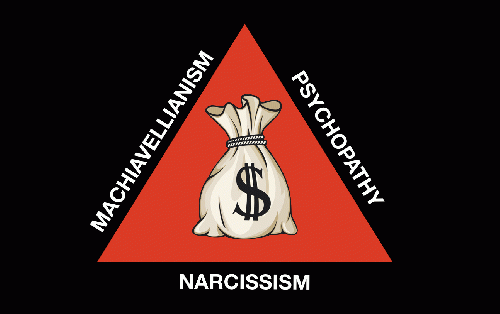They smashed up things and creatures and then retreated back into their money or their vast carelessness or whatever it was that kept them together, and let other people clean up the mess they had made. -- F. Scott Fitzgerald's The Great Gatsby
The Outrage of Billionaires
The data are stark and compelling. The richest 400 families in the United States own financial assets that exceed the wealth of the bottom 60% of all American households combined. U.S. billionaires pay taxes at a lower effective rate than working class families. The CEOs of S&P 500 companies, averaging over $14 million in annual compensation, make roughly as much in a single day as their median employee earns in an entire year. At the same time, research shows that such extreme inequality between rich and poor is a driving force behind many of society's most profound and corrosive ills. These disparities are associated with diminished levels of physical health, mental health, educational achievement, social mobility, trust, and community life. They're also linked to heightened levels of infant mortality, obesity, drug abuse, crime, violence, and incarceration.
In light of these realities, it's no surprise that some political leaders are calling for dramatic policy changes designed to tamp down economic inequality. Equally unsurprising, some members of the so-called billionaire class in this country are outraged by these proposals.Responding to Senator Bernie Sanders's comment that he doesn't think billionaires should exist, Stephen Schwarzman -- the billionaire CEO of the private equity firm Blackstone Group -- told a New York City audience, "Maybe Bernie Sanders shouldn't exist." On the Fox Business Network, Ken Langone, the billionaire co-founder of Home Depot, angrily called Sanders a "blowhard" and asked, "What the hell has he done for the little people?" And CNBC host Jim Cramer reported that Wall Street executives -- privately discussing the aspirations of Senator Elizabeth Warren -- had told him "she's got to be stopped."
Complaints like these are nothing new from America's super-rich. Almost a decade ago, Schwarzman (noted above) compared the possible elimination of a favorable hedge fund tax loophole to "when Hitler invaded Poland." A few years later, in a letter to the Wall Street Journal, now-deceased billionaire venture capitalist Tom Perkins wrote, "I would call attention to the parallels of fascist Nazi Germany to its war on its 'one-percent,' namely its Jews, to the progressive war on the American one-percent, namely the 'rich.'" And fellow billionaire Sam Zell told Bloomberg News, "This country should not talk about envy of the one-percent. It should talk about emulating the one-percent."
But should we really be trying to emulate the one-percent? Perhaps not. Psychological research suggests that the super-rich, as a group, aren't necessarily the role models we collectively need if our goal is to advance the common good and build a more decent society. In particular, one reason to be skeptical involves a constellation of interlinked personality traits -- Machiavellianism, psychopathy, and narcissism -- that psychologists call the "Dark Triad." The originators of the term summarize it this way: "To varying degrees, all three entail a socially malevolent character with behavior tendencies toward self-promotion, emotional coldness, duplicity, and aggressiveness."
Let's now consider each of these three components separately, in regard to what they may tell us about the one-percent.
Machiavellianism
The first trait of the Dark Triad -- Machiavellianism -- refers to one's willingness to deceitfully manipulate and exploit people and circumstances for personal gain. In an illuminating series of studies, psychologists have found that this tendency is more common among those with greater wealth and status.
These researchers compared the actions of participants categorized as either "upper class" or "lower class" -- based on measures of socioeconomic status -- in a variety of different situations. For example, one study used the age, model, and appearance of cars as a proxy for the drivers' wealth. Those driving more expensive vehicles cut off pedestrians and other cars more often at a busy intersection. In a second study, higher social-class participants reported a greater likelihood of engaging in various unethical behaviors, such as keeping extra change that was mistakenly given to them by a cashier.In a third study, half of the participants first compared themselves to people at the top of the socioeconomic ladder, while the other half instead compared themselves to those at the bottom of the ladder. Afterward, those in the second group -- now primed to see themselves as better off than others -- took more candy from a jar they were told had treats intended for children in a lab nearby. In yet another study, participants were instructed to play the role of an employer involved a hypothetical salary negotiation with a prospective employee. They were told that this job hunter was specifically looking for a long-term position -- and that this available opening would only last six-months. The researchers found that those higher in social class were more likely to deceptively withhold this important information from the applicant. A final study involved a game of chance using the computerized rolling of dice. Here too, the participants higher in social class cheated more often in order to receive a modest cash prize.
With findings like these, is it surprising that many huge corporations -- controlled by individuals with extraordinary personal wealth -- have employed Machiavellian tactics that fail to honor the public trust? There's no shortage of high-profile examples. At Enron, officials fraudulently propped up the company's stock price, leading thousands of unsuspecting employees to lose their retirement savings when the company collapsed shortly thereafter. General Motors turned a blind eye to manufacturing defects and then, despite the heightened risk of driver injury and death, engaged in a years-long cover-up. R.J. Reynolds and other tobacco companies spent decades withholding scientific evidence and misleading the public about the harmful effects of smoking. Large for-profit colleges and training institutes have lured students into expensive programs with deceptive advertising, have offered them false assurances of future employment, and have saddled them with lifetimes of debt. During the financial collapse a decade ago, investment banking giant Goldman Sachs recommended and sold to its clients billions of dollars of deceptively valued securities tied to risky home mortgages -- in order to unload these toxic assets from its own accounts. And pharmaceutical giant Purdue Pharma continued to aggressively market OxyContin for years after the company learned that the drug was highly addictive, contributing to tens of thousands of deaths from prescription opioid overdoses.
Psychopathy
(Note: You can view every article as one long page if you sign up as an Advocate Member, or higher).






